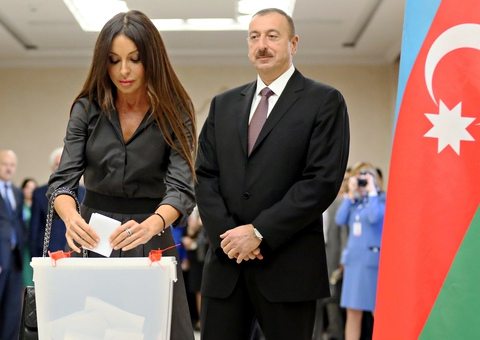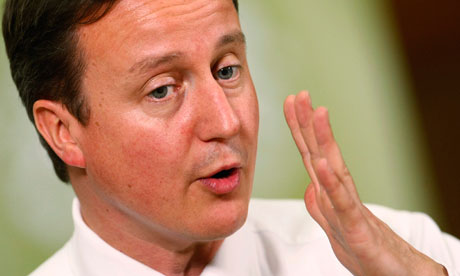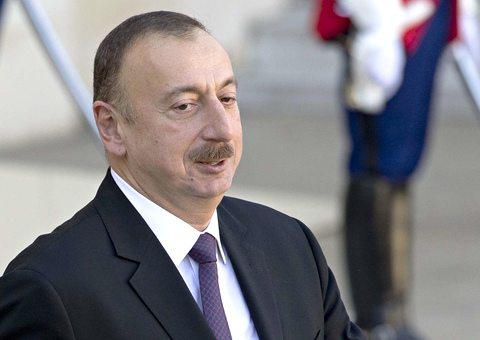A former president of the Council of Europe’s parliamentary assembly will be banned from holding any senior post in the human rights body for 10 years, after a major corruption inquiry into vote-rigging.
The unprecedented punishment has been handed down to the Spanish senator Pedro Agramunt, who has ignored calls to resign. He is backed by Spain’s governing conservative party – itself mired in domestic corruption scandals – to which he belongs.
The assembly (Pace) of the body set up after the second world war to safeguard democracy on the continent announced on Wednesday that Agramunt would be banned from chairing committees or taking part in election observation missions.
It was the latest response to a 10-month judge-led inquiry into cash for votes in favour of Azerbaijan’s autocratic government, a scandal that has plunged the Council of Europe into turmoil. Published last month, the inquiry stated that 15 past and former members had broken the ethics code, while four were “strongly suspected” of corruption.
Three other deputies, who were named in the report, have also been banned from taking senior positions for two years. Jordi Xuclà of the Catalan separatist party PDeCAT, which has also faced corruption allegations in recent years, was the leader of the liberal group until he stood down last October. Cezar Florin Preda of Romania resigned as head of the European People’s Party, the largest in the assembly, while insisting he was not guilty of any offence. Samad Seyidov is the head of Azerbaijan’s delegation. All, including Agramunt, have denied any wrongdoing.
The fall from grace is most spectacular for Agramunt, who was president of the assembly until October 2017, when he was forced out after joining a Russian-government trip to meet the Syrian leader, Bashar al-Assad. The Spanish politician has been strongly criticised for refusing to give evidence to the corruption inquiry, which said it “strongly suspected” he was party to “corruptive behaviour”.
The four men will be barred from representing Pace in other international bodies, but will retain the right to speak in the assembly, which is unable to force them out.
In a resolution passed last month, Pace called on national political parties “to each draw the consequences of any allegations against their members”, while calling on individuals to consider resignation.
But Spain’s People’s party concluded last month that the inquiry had “no legal consequences”. According to El País, Agramunt has the support of a large majority in the PP.
The party, led by the Spanish prime minister, Mariano Rajoy, has been mired in corruption scandals over recent years.
In July last year, Rajoy became the first serving Spanish premier to testify in a criminal trial after he was called to give evidence in the Gürtel case, in which 37 business and political figures are accused of involvement in a kickbacks-for-contracts scheme.
Rajoy, who was the PP’s vice secretary general between 1990 and 2003, emphatically denied any knowledge of an illegal funding racket within the party.
Meanwhile, the fall-out from the Council of Europe corruption inquiry continues, with the prospect of further sanctions, including for two British ex-MPs.
The former Conservative MP Robert Walter was found by the inquiry to have broken the assembly’s code of conduct, by failing to declare a conflict of interest linked to his wife’s trade lobbying activities in Azerbaijan. Giving evidence, he strongly denied any conflict of interest.
Walter had led an election observation mission for Pace in Azerbaijan and carried out an investigation into the disputed territory of Nagorno Karabakh.
The former MP Mike Hancock, who was expelled from the Liberal Democrats, was censured for failing to give evidence. During his time at Pace, Hancock was a frequent guest in Baku and once praised its electoral process. He declined to attend the inquiry, citing his health and the fact he was no longer an MP.
Both men face being stripped of the prestige title “honorary associate” of the assembly, as well as use of the buildings.
The report has been sent to the speakers of all 47 parliaments that send MPs to the Strasbourg assembly.
Pieter Omtzigt, a Dutch MP, who led calls to launch the inquiry, said: “I am very interested to see what the House of Commons will decide to do.”
A spokesperson for the Commons Speaker, John Bercow, declined to comment. The parliamentary commissioner for standards has the power to investigate ex-MPs, an exceptional measure that takes place only following consultations with the Commons committee on standards.












